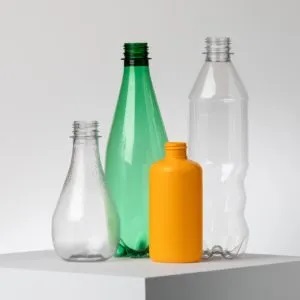A consortium including, L’Oréal, Nestlé, PepsiCo, Suntory and Carbios is using a new enzymatic recycling process with the promise of endlessly recycled PET plastic.
Each company in the consortium has successfully manufactured sample bottles, all based on Carbios’ enzymatic PET recycling technology, for some of their leading products including: Biotherm, Perrier, Pepsi Max and Orangina.
Today’s announcement is the culmination of nearly a decade of research and development to create a new process using an enzyme naturally occurring in compost heaps that normally breaks down leaf membranes of dead plants. By adapting this enzyme, Carbios has harnessed the technology and optimised this enzyme to break down any kind of PET plastic (regardless of colour or complexity) into its building blocks, which can then be turned back into like-new, virgin-quality plastic.
Around 70 million tonnes of PET plastic is manufactured globally every year – equal to around 20 per cent of all plastic – but through repeated conventional thermomechanical processes, the plastic used in packaging is degraded over time and requires new virgin plastic to retain its quality.
Enzymatic recycling overcomes the issue of degradation in conventional recycling and can be used on any type of PET plastic. Because this recycling process works under mild conditions, it also lowers the carbon footprint of PET waste treatment by saving 30 per cent of CO2 emissions compared to a conventional end of life mix of incineration and landfill, taking virgin PET production substitution into account.
Latest News
-
Campaigners urge businesses to step up promotion of payroll giving
-
Morrison’s Foundation helps develop sensory room for people with disabilities
-
Charity launches service to help firms communicate with young people
-
Cornish brewery to fundraise for local children’s hospice
-
Waitrose bolsters support for banana farmers
-
Three UK’s partnership with Samaritans raises £1m
© 2019 Perspective Publishing Privacy & Cookies








Recent Stories